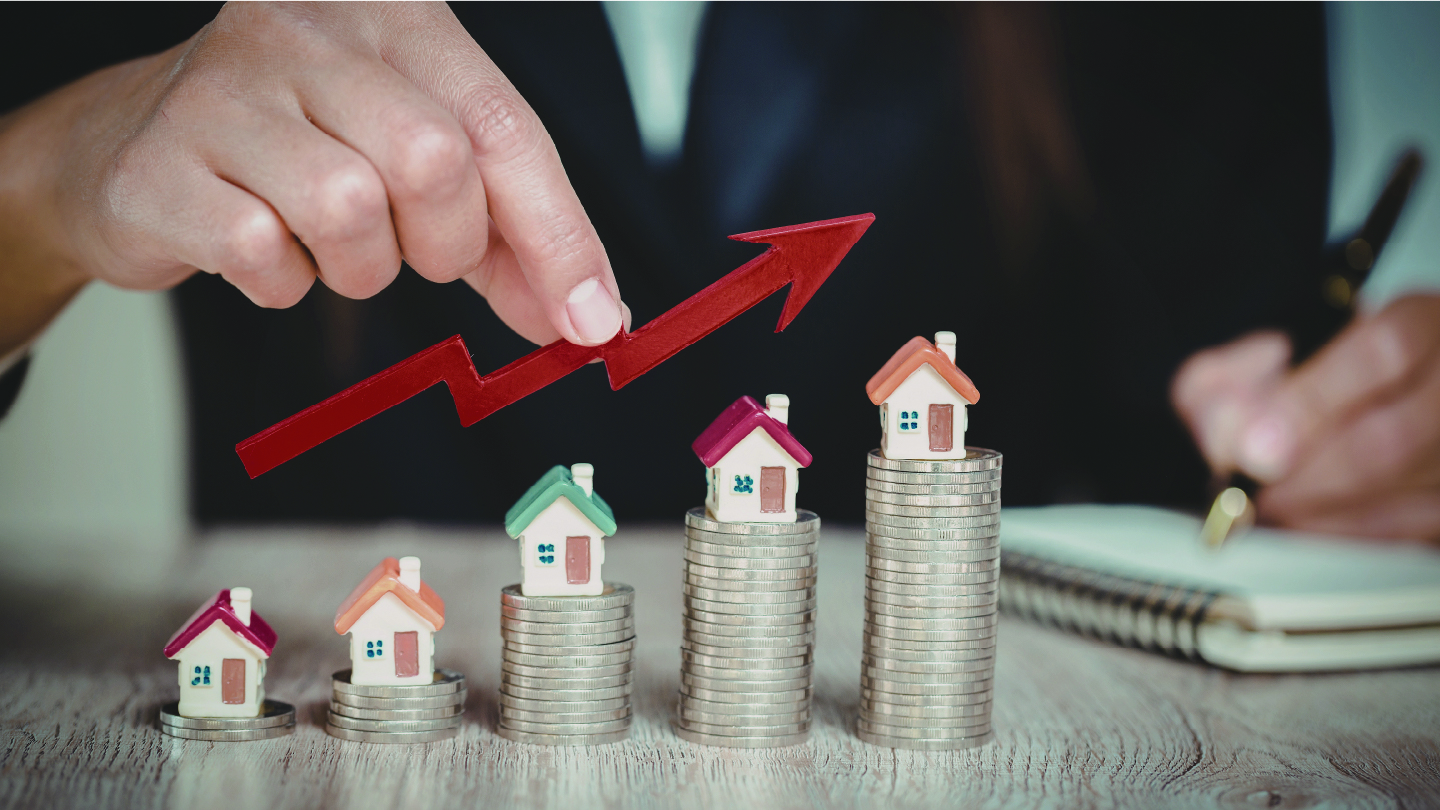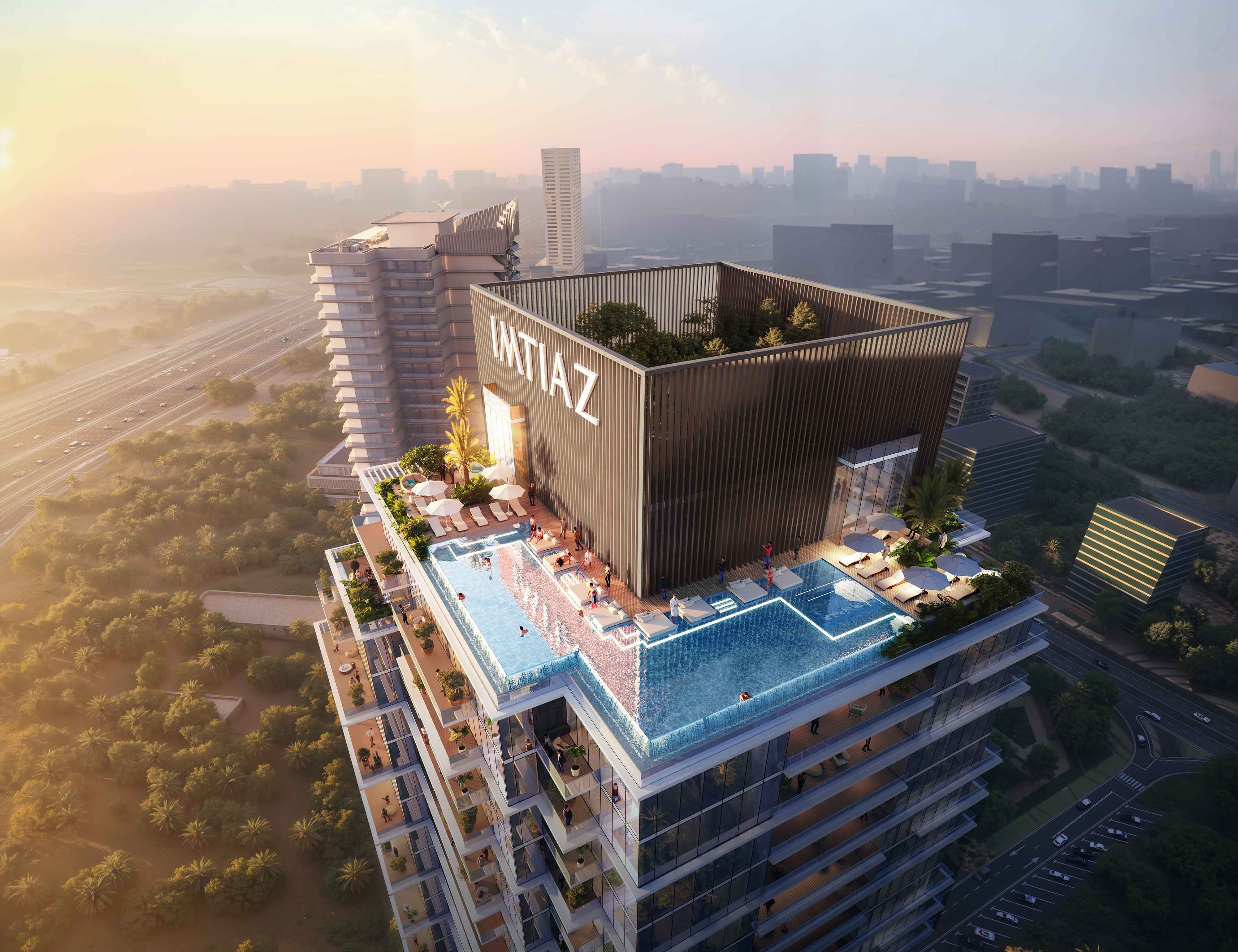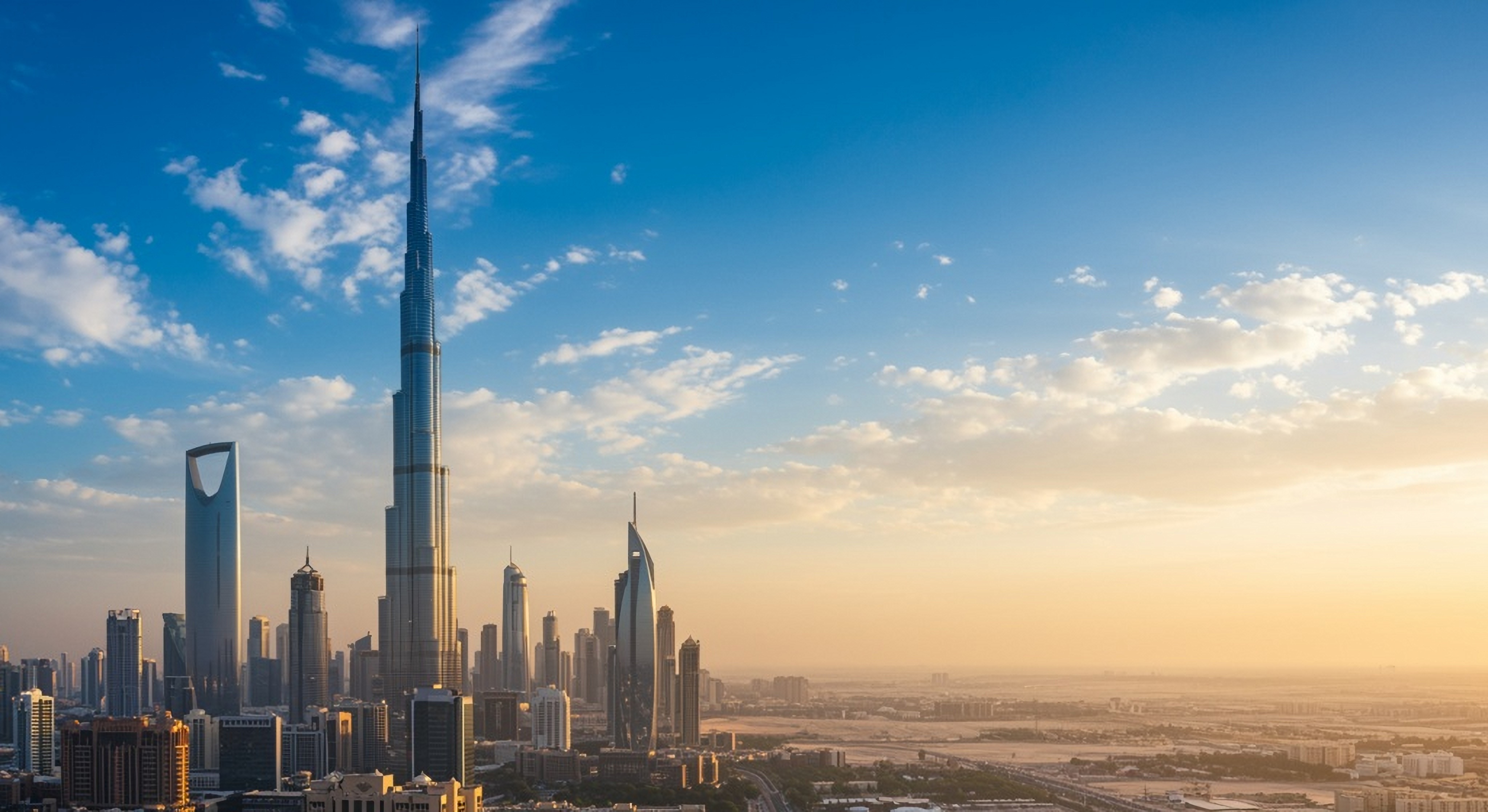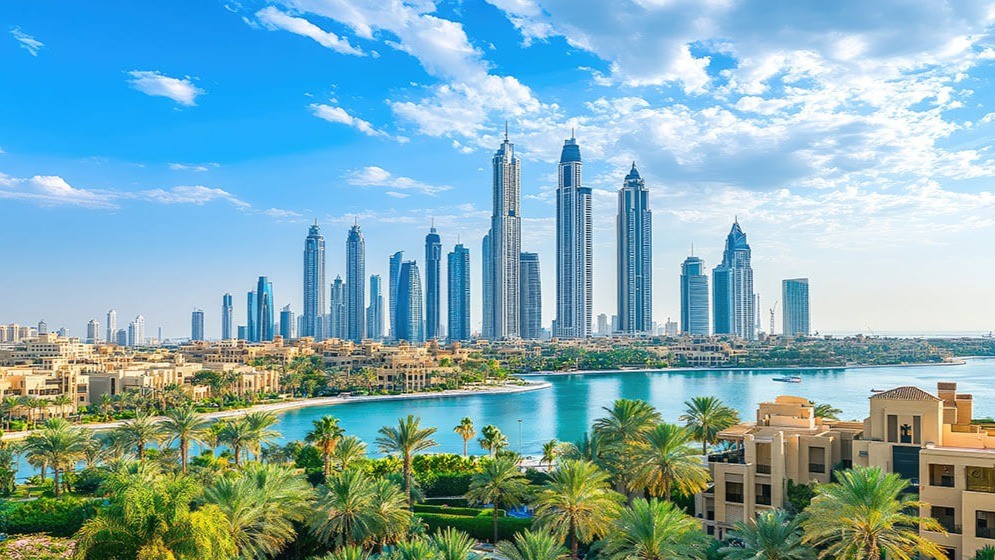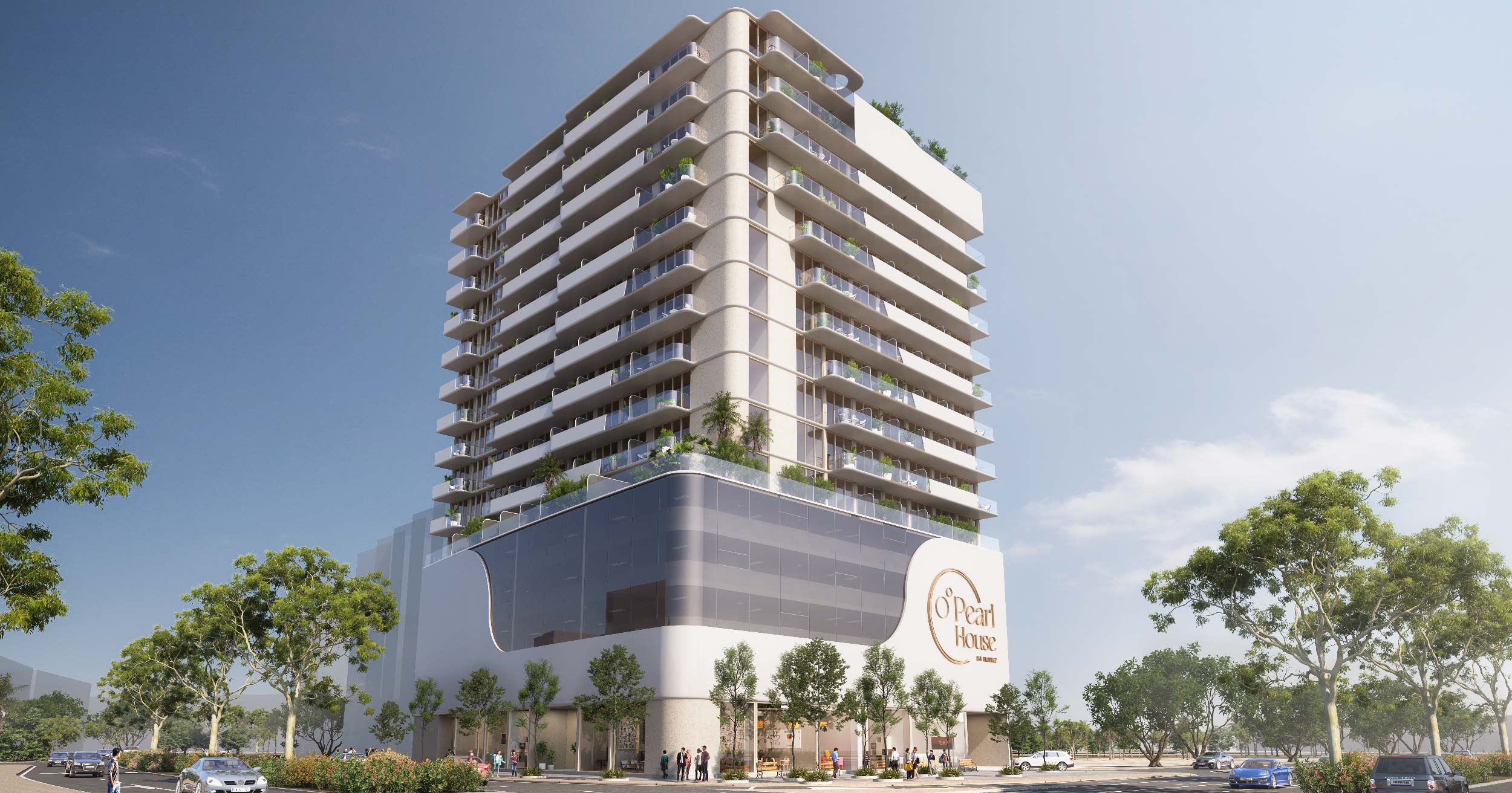Dubai is presenting a central global real estate investment hub for individuals, families, and institutions around the world. The city provides a distinctive lifestyle and financial opportunity, combined with its advantageous location, tax-free atmosphere, high rental yields, and top-notch infrastructure.
This blog will review the benefits and drawbacks of purchasing real estate in Dubai. Before deciding, we'll help you comprehend the advantages of investing in Dubai real estate and any potential disadvantages. This guide will help you in determining whether investing in real estate in Dubai is the best course of action for you, regardless of whether you are a novice investor or are investigating new foreign markets.
Key Benefits of Buying Property in Dubai

Investing in Dubai's real estate market offers attractive advantages that set it apart from other global property hubs. Here's why so many buyers are turning to Dubai property investment:
Tax-Free Returns:-
Dubai's real estate market offers tax-free ROI, which means that investors can earn higher net returns on rental income and capital appreciation.
High Rental Yields:-
Dubai consistently offers strong rental yields—often between 6% and 8% annually—especially in high-demand areas like JVC, Dubai Marina, and Downtown Dubai. This makes real estate investing in Dubai particularly appealing to buy-to-let investors.
Full Foreign Ownership in Freehold Areas:-
Property in designated freehold zones is perfect for long-term investment because it allows foreign nationals to buy it with 100% ownership rights, including the ability to sell, lease, or inherit the property.
World-Class Infrastructure and Lifestyle:-
From modern transport networks to luxury retail and leisure facilities, Dubai offers an exceptional standard of living. Investors aren't just buying a property; they're buying into a premium lifestyle.
Residency Through Investment :-
Investing a minimum of AED 750,000 allows buyers to apply for a renewable 3-year residency visa. Moreover, investing AED 2 million or more allow buyers to apply for a 10-year Golden Visa, which adds long-term value beyond the property.
Understanding the Risks: Challenges of Investing in Dubai Real Estate
While the benefits of buying property in Dubai are compelling, it's equally important to understand the challenges that come with investing in a fast-evolving market:
Market Volatility:-
Dubai's real estate market can be highly cyclical, with prices influenced by global trends, oil prices, and investor sentiment. Dubai property investment may have short-term price changes, especially in oversupplied areas.
High Transaction Costs:-
Despite the lack of income tax, buying property in Dubai involves notable upfront costs, such as the 4% Dubai Land Department fee, agency commissions, and maintenance charges. If not planned for, these expenses can impact overall returns.
Service Charges and Maintenance Costs:-
Many properties, especially in high-end developments, come with ongoing service charges. These can add up over time and should be factored into your budget when assessing the actual cost of ownership.
Regulatory Differences:-
The legal and administrative framework may seem complex for foreign investors unfamiliar with UAE property laws. Although Dubai has made strides in transparency, it is important to work with trusted, RERA-registered professionals.
Limited Financing for Non-Residents:-
While non-residents can get a mortgage in Dubai, financing options are often more limited than for residents. Lenders may require larger down payments, shorter terms, and higher interest rates.
Tips for real estate investment in Dubai
Establish Your Investment Goals:-
Determine if you're purchasing for personal use, capital growth, or rental income; this will influence the type of property you choose and where you buy it.
Establish a reasonable budget:-
Consider the cost of the property, DLD fees, agency commissions, maintenance expenses, and possible financing costs.
Do a thorough market analysis:-
In critical areas, stay abreast of future developments, rental yields, and price trends. Knowledge is your best investment tool.
Select the Proper Site:-
Pay attention to places like JVC, Dubai Islands, DLRC, and Downtown Dubai, which have a lot of demand and room to grow.
Explore best projects in JVC and other top areas
Think About Rental Yields:-
For higher returns, seek out properties with high rental demand and yields of 6% to 8% per year.
Collaborate with Professionals Registered with RERA:-
Select only authorised brokers and developers to guarantee openness and compliance with the law.
Examine the Ownership Rules:-
If you're a foreign investor, recognise the distinction between leasehold and freehold properties.
Avoid Skipping Due Diligence:-
Before signing anything, check the developer's history, project status, and legal approvals.
See why investors trust Imtiaz Developments
Recognise Your Mortgage Options:-
If necessary, consider financing; however, non-residents might be subject to more stringent conditions and larger down payments.
Consider the Long Term:-
The best approach to Dubai real estate is as a medium—to long-term investment. Plan for market cycles and exercise patience.
Conclusion
With its high rental yields, tax-free returns, and top-notch infrastructure, Dubai remains one of the world's most desirable real estate markets. Like any investment, though, there are flaws. Making wise, self-assured decisions requires knowing the benefits and disadvantages of purchasing real estate in Dubai.
Dubai presents a strong argument for astute investors, regardless of their goals—long-term profits, portfolio diversification, or a specific lifestyle. Real estate investing in Dubai can be a lucrative step towards accumulating wealth on a worldwide scale with careful planning, appropriate professional advice, and a well-defined strategy.
Frequently Asked Questions
What is the Best Property Investment in Dubai?
The best property investment in Dubai depends on your goals. For strong rental yields, areas like Jumeirah Village Circle (JVC) and Dubai Marina are popular among investors. Consider emerging areas like Dubai South or Meydan if you're looking for long-term capital appreciation. Downtown Dubai and Palm Jumeirah offer premium options for luxury and lifestyle-focused buyers. Off-plan properties can also be a wise investment if you're comfortable with construction timelines and want flexible payment plans. Ultimately, the best investment aligns with your budget, risk appetite, and plans.
Is It Worth Buying Property in Dubai?
Yes, for many investors, buying property in Dubai is worth it—thanks to tax-free rental income, high yields (often 6–8%), and growing demand from both residents and international tenants. The city's world-class infrastructure, strategic location, and investor-friendly regulations make it a reliable long-term option. However, like any market, it comes with risks such as price fluctuations and service charges, so it's essential to do thorough research and invest wisely. With the right strategy, Dubai property investment can offer strong returns and long-term value.
What is RERA?
RERA (Real Estate Regulatory Agency) is the governing body responsible for regulating Dubai's real estate sector. It operates under the Dubai Land Department (DLD) and ensures transparency, fairness, and legal compliance in all property transactions. In addition to regulating licensing, dispute resolution, and standardised contracts, RERA establishes guidelines for developers, brokers, and investors.
What Minimum Investment is Required for a Golden Visa in Dubai?
To qualify for a 10-year Golden Visa in Dubai, you must invest a minimum of AED 2 million in real estate. The property can sometimes be ready or off-plan and jointly owned. This visa offers long-term residency benefits and can be extended to immediate family members. It is an attractive option for investors seeking stability and future planning in the UAE.
What Taxes Apply to Property Ownership in Dubai?
For real estate investors, Dubai provides a tax-friendly environment. For residential properties, there are no yearly property taxes, capital gains taxes, or rental income taxes. However, at the time of purchase, buyers are required to pay a one-time 4% property registration fee to the Dubai Land Department. Furthermore, only commercial properties and specific off-plan transactions are subject to the 5% VAT. One of the main factors keeping Dubai as a top destination for real estate investment is its low tax structure.

